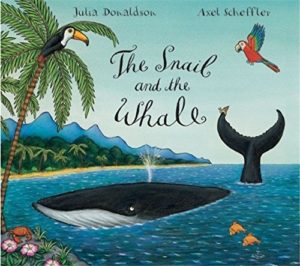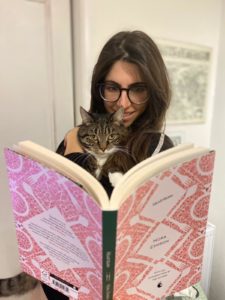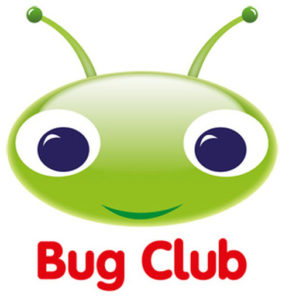 At Holly Park we use Bug Club Phonics. Bug Club Phonics is one of the DfE’s approved phonics teaching programmes and aims to help all children to learn to read by the age of six in a fun and accessible way. Following its own proven progression, the whole school programme matches the National Curriculum and Early Learning Goals.
At Holly Park we use Bug Club Phonics. Bug Club Phonics is one of the DfE’s approved phonics teaching programmes and aims to help all children to learn to read by the age of six in a fun and accessible way. Following its own proven progression, the whole school programme matches the National Curriculum and Early Learning Goals.
- Bug Club Phonics lessons are supported with 134 fully decodable readers with fiction and non-fiction titles from Phases 2 to 5
- children read from Bug Club books with the sounds they know as they are learning to read
- Children can access their ebooks at home and so can apply the knowledge and skills from their phonics lesson at home that night.
- We also use Bug Club Guided Reading at Key Stage 1
- Bug Club Guided reading is centred around books that children want to read.
- Guided reading cards accompany each of the books and cover multiple sessions that go into depth with each text.
- These focus on questions that will challenge and grow the children’s comprehension skills.
- There are also accompanying activities to support each title and extend learning
- Bug Club Guided reading helps children master fluency and deepen comprehension.
- Here are the Bug Club phonemes: Bug Club Phonics Phoneme Posters 2021
- Here is the Bug Club progression chart: Bug Club Phonics Progression Chart 2021
The Curriculum
Nursery
 Communication skills underpin all literacy skills and so we give children lots of opportunities to develop their listening, understanding and spoken language through sustained conversations between children and adults, one-to-one, in small groups and during their own initiated activities. We develop children’s auditory and phonological awareness through carefully planned activities that are based on the Phase One.
Communication skills underpin all literacy skills and so we give children lots of opportunities to develop their listening, understanding and spoken language through sustained conversations between children and adults, one-to-one, in small groups and during their own initiated activities. We develop children’s auditory and phonological awareness through carefully planned activities that are based on the Phase One.
- Children have lots of opportunities to join in with rhymes, songs and repeated refrains in books during story time sessions.
- They have opportunities to play games such as `Sound Socks` where they have to tune into different sorts of sounds.
- The adults working in Nursery also help to develop children’s auditory and phonological awareness during children’s self-chosen activities
- When appropriate some children will be supported in starting to link phonemes to graphemes, identifying initial sounds in their own names
- A love of reading is fostered through core books that are used to develop cross curricular topics
- Children are also encouraged to choose books from the Book Areas to take home to share with their families.
Reception
 During Reception children continue to develop their auditory awareness through activities such as `Silly Soup` and they also develop their phonic knowledge, linking phonemes to graphemes, through carefully sequenced daily Phonics teaching using the Bug Club Phonics Scheme.
During Reception children continue to develop their auditory awareness through activities such as `Silly Soup` and they also develop their phonic knowledge, linking phonemes to graphemes, through carefully sequenced daily Phonics teaching using the Bug Club Phonics Scheme.
- Any children falling behind are quickly identified and receive additional support in daily`Pre-teach` Phonic Interventions
- All children in Reception practise and consolidate their phonic skills through daily Bug Club shared reading activities and through one to one guided reading.
- They also practise reading Bug Club ebooks at home with their parents and carers.
- Bug Club ebooks match the progression of phonics teaching, enabling children to apply and consolidate their phonic skills.
- Children also have lots of opportunities to apply their phonic skills during their own self chosen activities.
- Children use their phonic skills to help them write food orders in the Reception Café and read `alien` words to their friends.
- Learning in Reception is based around high quality core storybooks
- Core texts inspire and underpin cross curricular learning and help to foster a love of books and reading.
- Children are also encouraged to choose books from our library boxes to take home to share with their family.
Year One
 Children begin Year One by recapping Phase Four before quickly moving onto Phase Five. Year one continue to use the Bug Club Phonics scheme that includes daily lessons that are matched up to ebooks that the children can practise reading at home.
Children begin Year One by recapping Phase Four before quickly moving onto Phase Five. Year one continue to use the Bug Club Phonics scheme that includes daily lessons that are matched up to ebooks that the children can practise reading at home.
- Children in Year One learn a range of alternative graphemes and begin to identify and read them in texts.
- Children’s progress in phonics is monitored on a daily basis and children who need additional support are identified for intervention groups run by the TA.
- Children have opportunities to apply and consolidate their phonic learning with activities in the continuous provision for example word tub games.
- Whole Class Guided Reading sessions happen every day using our online Bug Club Reading Scheme
- Bug Club texts are closely matched to the phonics covered in day to day teaching
- These texts provide children with the opportunity to develop their comprehension skills
- A love of reading is fostered through the use of quality texts that are linked to cross curricular topics.
- Children develop a deep understanding of texts; they are encouraged to talk about them and they use them to inspire their own writing.
- Year One children continue to enjoy listening to stories every day
- They choose books from the Book Areas to take home to share with their families.
Year Two
During Year Two Phonics teaching follows the Phase Six phonic progression. During this year children will also begin to use the No Nonsense Spelling scheme to consolidate their understanding of Phase Six. The children will learn some of the rarer GPCs (Letter to Sound correspondence). They will be taught how to spell the past tense forms of verbs, learn about suffixes and continue to develop their knowledge of the spelling system.
- They practise and consolidate their reading skills during whole class daily reading sessions using our online Bug Club reading scheme
- Children who need additional support with their phonic skills will take part in Bug Club Rapid Phonics Interventions several times a week
- Topic learning is often linked to high quality core books
- During their time in Year Two children will read longer and less familiar texts independently and with increasing fluency
- They will also learn a range of comprehension strategies and will begin to use inference and deduction to deepen their understanding of texts
- Over the course of the year children will explore a range of genres that include; information texts, storybooks and poetry.
Phonics Interventions Y2 to Y6
At Holly Park School we also give additional support to any children from Year 2 through to Year 6 who may have fallen behind with their phonics skills or are new to the country.
- We provide these children with a comprehensive Bug Club catch up programme called Rapid Phonics
- Children taking part in these interventions will have three additional Phonic lessons a week
- They will also be allocated e-books to develop their reading skills
- Rapid Phonics ebooks will be available to read online at home.
Here are some helpful phonic resources:

